42 what to look out for on nutrition labels
How to Read Food Labels Without Being Tricked - Healthline Nutrition labels state how many calories and nutrients are in a standard amount of the product — often a suggested single serving. However, these serving sizes are frequently much smaller than what... How to understand food labels | Eat For Health The Nutrition Information Panel on a food label offers the simplest and easiest way to choose foods with less saturated fat, salt (sodium), added sugars and kilojoules, and more fibre. It can also be used to decide how large one serve of a food group choice or discretionary food would be and whether it's worth the kilojoules.
How to Understand and Use the Nutrition Facts Label | FDA Dietary fiber, vitamin D, calcium, iron ad potassium are nutrients on the label that Americans generally do not get the recommended amount of. They are identified as nutrients to get more of....
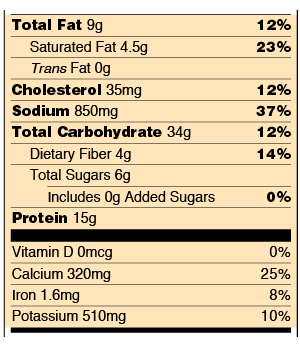
What to look out for on nutrition labels
What is the Nutrition Facts Label and how do I understand it? The nutrition facts label is the rectangular-shaped box of information on the back or side of packaged foods that you purchase. Regulated by the Food and Drug Administration (FDA), the label is designed to tell you about the nutritional profile of the food or beverage you are consuming. The Basics of the Nutrition Facts Label - Academy of Nutrition and ... The following is a quick guide to reading the Nutrition Facts label. Step 1: Start with the Serving Size Look here for both the serving size (the amount people typically eat at one time) and the number of servings in the package. Compare your portion size (the amount you actually eat) to the serving size listed on the panel. How to Read a Nutrition Facts Label | Everyday Health The daily recommendation for potassium is 4,700 mg and for sodium, 2,300 mg, so, when you look at a nutrition facts label, the ideal product would have at least as much potassium as sodium, if not ...
What to look out for on nutrition labels. Reading Food Labels | ADA - American Diabetes Association The Nutrition Facts labels on foods are really the key to making the best choices. We'll cover the basics so that these labels make shopping easier for you. Get started Understanding Carbs You've heard it all. From carb-free to low-carb, to whole and empty carbs, it's hard to know what it all means. Learn more Food & Blood Sugar The New Nutrition Facts Label | FDA The U.S. Food and Drug Administration (FDA) has updated the Nutrition Facts label on packaged foods and drinks. FDA is requiring changes to the Nutrition Facts label based on updated scientific ... 10 things diabetics need to look for on nutrition labels The American Diabetes Association offers these tips for getting the most out of the information on the labels: Find out what the serving size is, and how many servings the package contains. All the nutrition information (calories, fat, etc.) is based on serving size, and if you eat the whole package, you need to multiply the calories, carbs ... Understanding Food Labels | The Nutrition Source | Harvard T.H. Chan ... Understanding Food Labels. The information on food labels is intended to help consumers become savvy about their food choices. The front, back, and sides of a package are filled with information to inform us what the food contains and to provide guidance in making healthier selections of processed foods. However, all the numbers, percentages ...
How to Understand Nutrition Labels - Insider No more than 10% of your daily calories should come from saturated fat. You can find out whether you're staying below that percentage by looking at the percent daily value column located all the way to the right on a nutrition label. This tells you the percent of your daily value of calories a certain nutrient makes up. What to Look For on Nutrition Labels - dummies Trans fatty acid is the newest item to be added to the Nutrition Fact label. Like saturated fat, trans fat is a type of fat. The grams of these fats, and their calories, are already accounted for in the total fat. To figure the number of grams of fat that 30 percent represents, start with your total number of daily calories. 7 Things You Should Always Check On A Nutrition Label—Other Than ... Look for packaged foods that have as much fiber (and as little sugar) as possible. And steer clear of brands that list enriched flour or the added sugars in the ingredients. Instead, look for terms like 'whole-wheat' and 'whole-grain' and other wholesome ingredients like oats, quinoa, amaranth, and barley, Rizzo adds. Food Label Claims: What You Can and Can't Trust - WebMD Gluten-Free. This label is important for people with gluten sensitivity or celiac disease, an autoimmune condition. There is no FDA symbol for this standard. But you can trust a gluten-free claim ...
How to Read Supplement Labels Like a Pro - Healthline Ingredients. When selecting a supplement, reading the ingredient label is key. Check carefully for ingredients like fillers, sweeteners, preservatives, and additives, all of which will be listed ... Nutrition Labels 101: Making Sense of the Facts for Better Senior ... Dietary fiber: Daily Value (DV) of 28 grams. According to the Mayo Clinic, dietary fiber is important for good bowel health. It increases the weight and size of stool and softens it, helping to lower the risk of developing hemorrhoids and small pouches in the colon. Some studies have suggested fiber can also lower the risk of colorectal cancer. When it comes to reading food labels, what's most important? 5 Things to Look Out for On Nutrition Labels - Inspired By This Always look for 0 grams of trans fat on the nutrition label and avoid products that say "partially-hydrogenated oil" in the ingredient list. 3. Dietary Fiber Fiber is a complex carb that actually reduces the total carbohydrate content of a food. Put simply, net carbohydrates = total carbs - fiber… the higher the fiber, the lower the net carbs.
Food Labels | Nutrition.gov Learn the difference between total sugars and added sugars, and discover how the Nutrition Facts Label can help you choose foods that are lower in added sugars. Folate and Folic Acid on the Nutrition and Supplement Facts Labels HHS, Food and Drug Administration, Center for Food Safety and Applied Nutrition
How to Read Nutrition Labels for Weight Loss and Health - Calorie Secrets Total carbohydrates and sugar content are found on the label. Look for products with less than 10g of sugar per 100g serving if possible, although if the product contains fruit this is likely to be difficult. In this case aim for 20g or less. Protein The total protein content of a product is listed here. Fibre
Understanding Food Nutrition Labels | American Heart Association Learn what to look for on the label. 1 - Start with the serving information at the top. This will tell you the size of a single serving and the total number of servings per container (package). 2 - Next, check total calories per serving and container.
How to Read Nutrition Labels for Low-Glycemic Shopping Although nutrition facts labels include data on total carbohydrates and sugars, that doesn't give you much to go on as far as glycemic load. To determine that, you really need to know what the food is made up of. For instance, if you find whole-grain bread, you need to know what grain was used to make it — wheat, oats, or millet.
Easy Guide to Understanding Food Labels When You Have High ... - MyDoc Food labels tell you what is in the food and drinks you are consuming. Every packaged and processed product should have a food label to help you determine its nutrition content. The food labels can help you sieve through misleading claims, shop faster and make better food choices to lower your cholesterol levels.
Food Labels | CDC - Centers for Disease Control and Prevention If you eat the whole thing, you are eating 8 times the amount of calories, carbs, fat, etc., shown on the label. Total Carbohydrate shows you types of carbs in the food, including sugar and fiber. Choose foods with more fiber, vitamins, and minerals. Choose foods with lower calories, saturated fat, sodium, and added sugars. Avoid trans fat.
How to Read Food Labels for a Heart-Healthy Diet In general if you take the total carbs and subtract the fiber, you get net carbs, a better indicator of what the body will absorb into the blood stream. The lower the net carbs, the better." Berries: "I usually choose blueberries, which are anti-inflammatory and not as high in sugar as bananas."
Food labels: what to look for | Eat For Health In this section. Tips for eating well. Healthy eating throughout all of life. How to understand food labels. Food labels: what to look for. Healthy Recipes. Food Safety.
Reading food labels: Tips if you have diabetes - Mayo Clinic Look for foods with fats, cholesterol and sodium on the low end of the Daily Value; keep fiber, vitamins and minerals on the high end. If your doctor or registered dietitian recommends more or less than 2,000 calories a day, you may need to adjust the percentage accordingly — or simply use the percentage as a general frame of reference.
7 Things to Look for on a Nutrition Label (Other Than Calories) - Shape In general, look for ingredients that end in "ose" like glucose, fructose, and dextrose. For a comprehensive list of words that signal added sugars (they're not always so obvious), check out choosemyplate.gov.
Looking at labels - British Nutrition Foundation They will allow you to make comparisons between products that are high, medium or low in fat, saturated, salt and sugar. Looking at the nutrition information on food labels can help you make healthier choices. Allergens will be listed and emphasised in the ingredients list. Front of pack label The Eatwell Guide.
How to Read a Nutrition Facts Label | Everyday Health The daily recommendation for potassium is 4,700 mg and for sodium, 2,300 mg, so, when you look at a nutrition facts label, the ideal product would have at least as much potassium as sodium, if not ...
The Basics of the Nutrition Facts Label - Academy of Nutrition and ... The following is a quick guide to reading the Nutrition Facts label. Step 1: Start with the Serving Size Look here for both the serving size (the amount people typically eat at one time) and the number of servings in the package. Compare your portion size (the amount you actually eat) to the serving size listed on the panel.
What is the Nutrition Facts Label and how do I understand it? The nutrition facts label is the rectangular-shaped box of information on the back or side of packaged foods that you purchase. Regulated by the Food and Drug Administration (FDA), the label is designed to tell you about the nutritional profile of the food or beverage you are consuming.
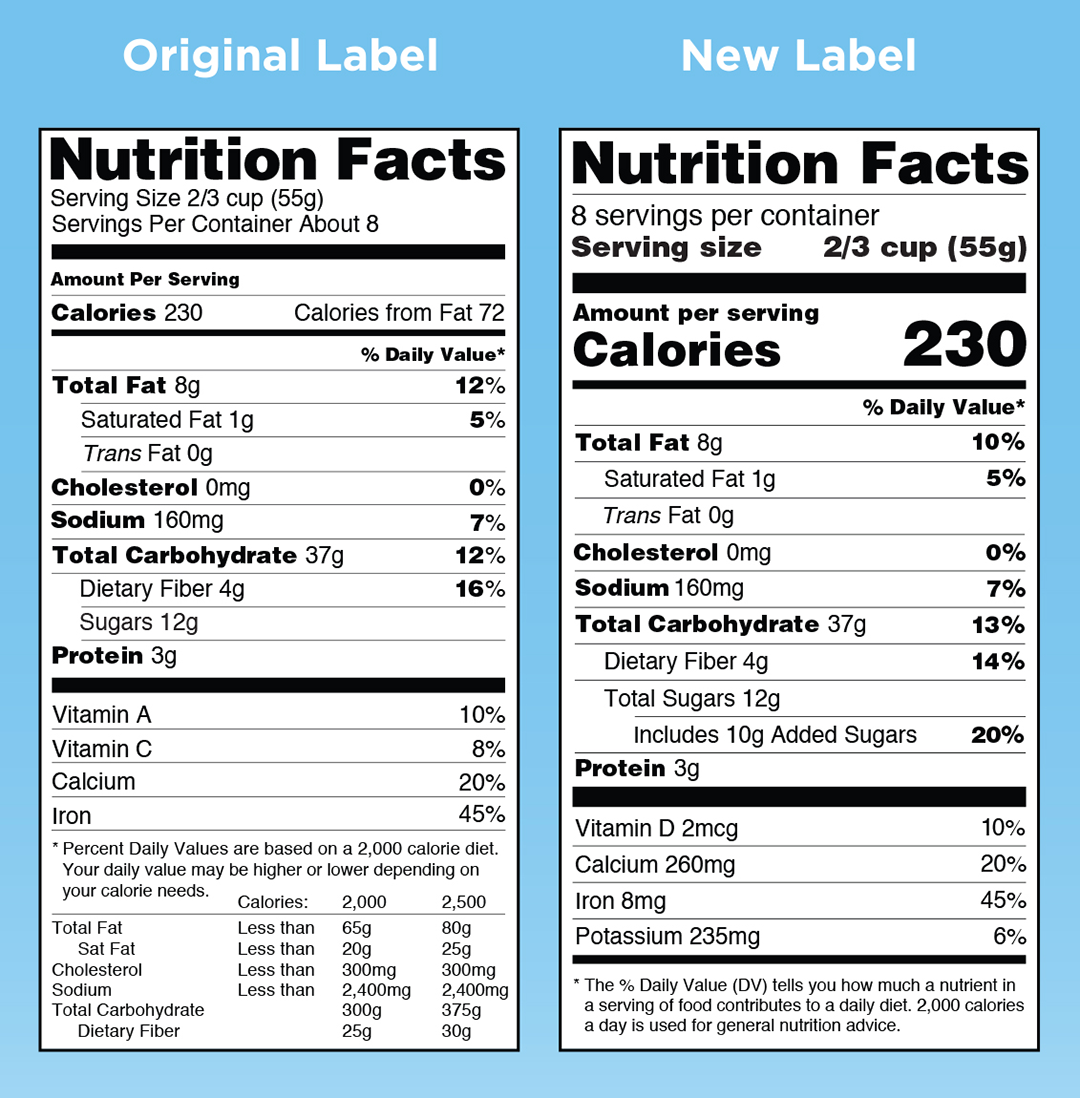





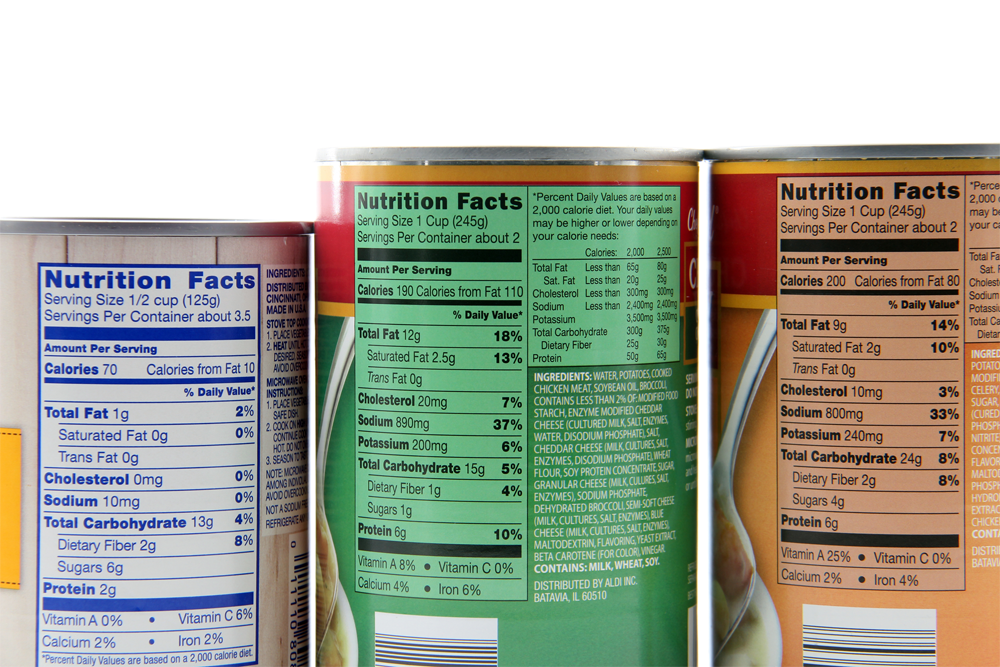




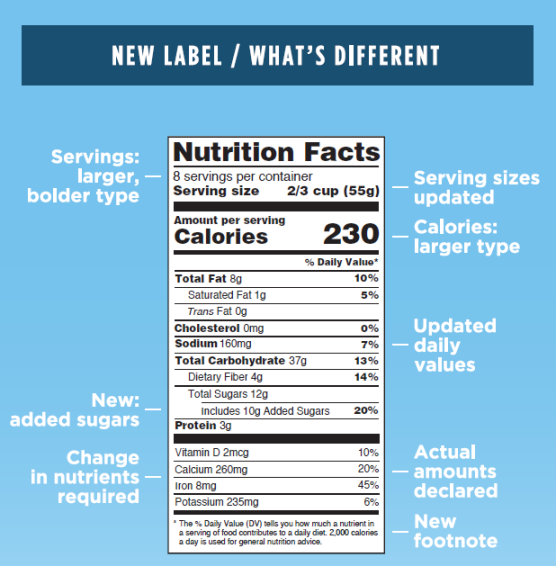

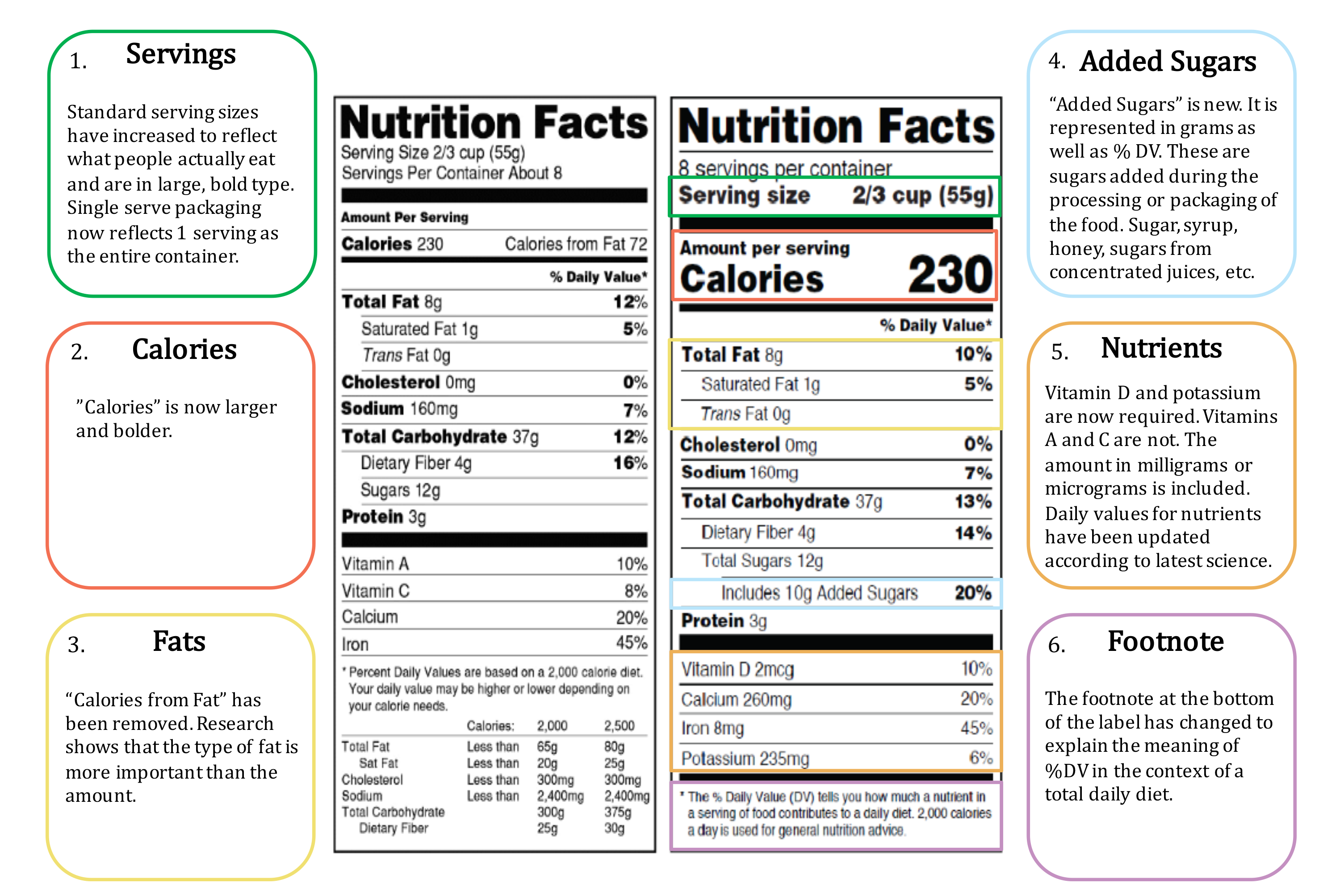
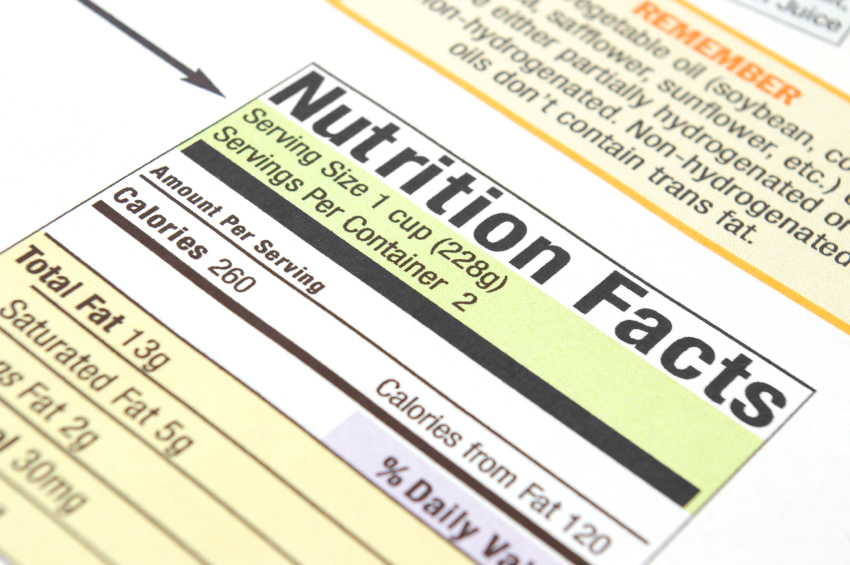
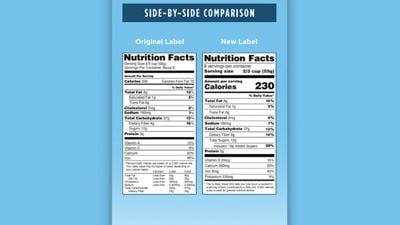

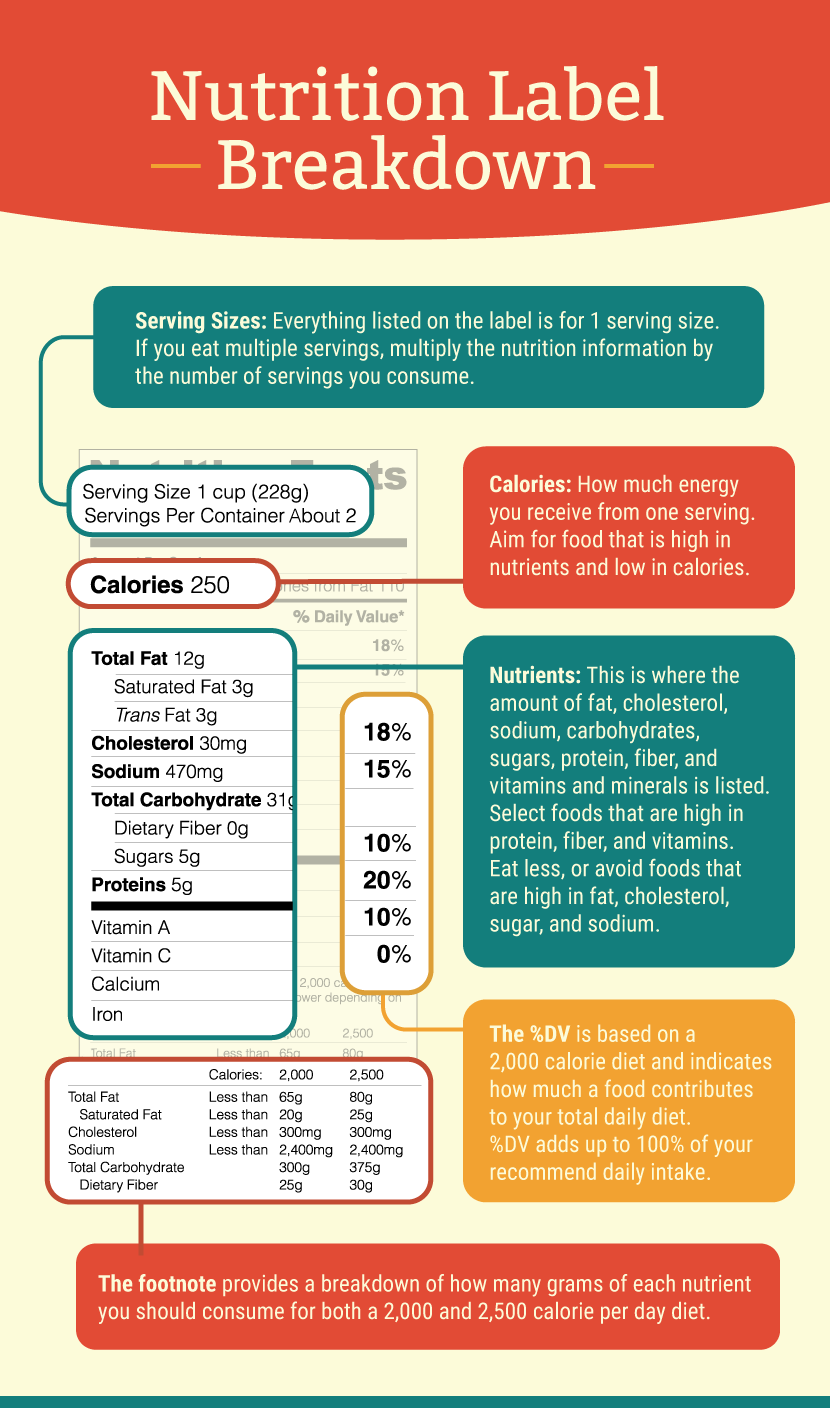







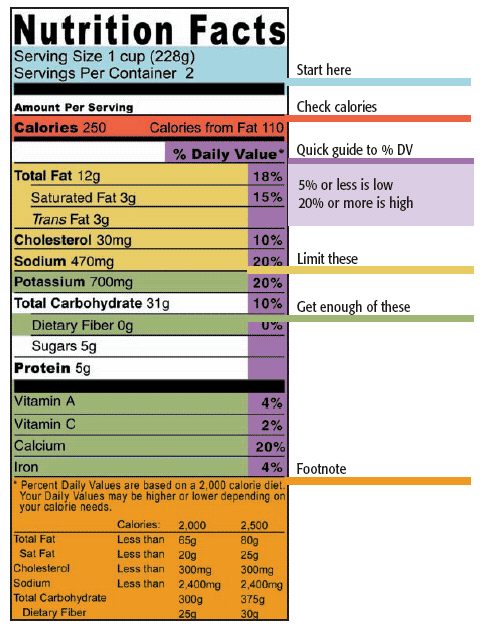
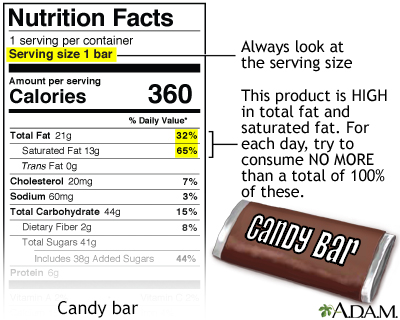

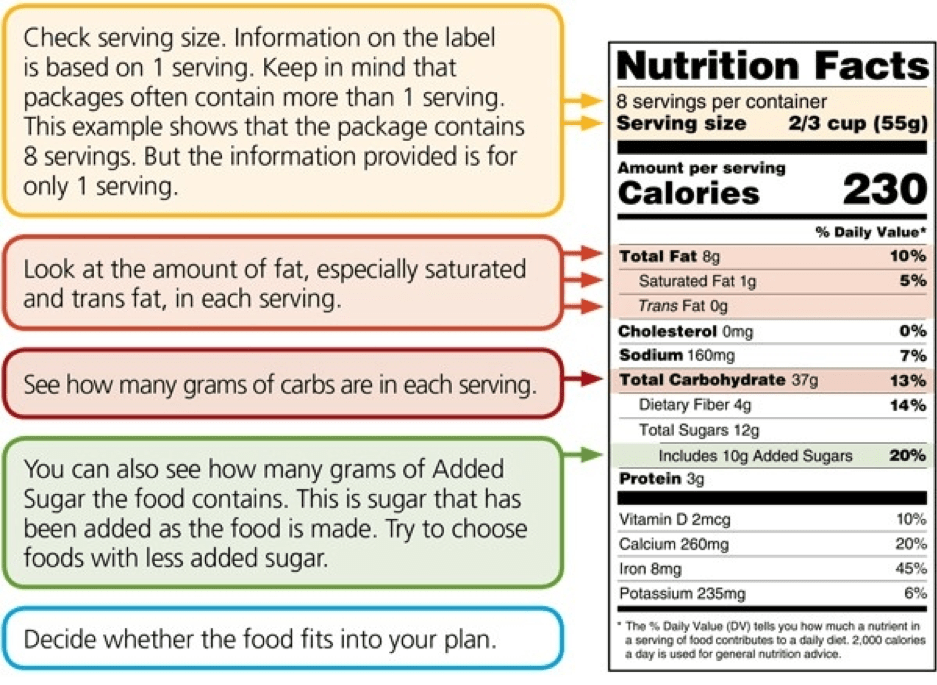
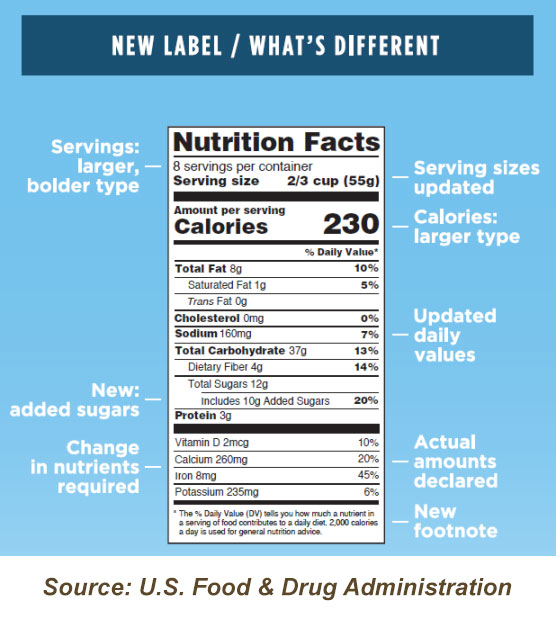
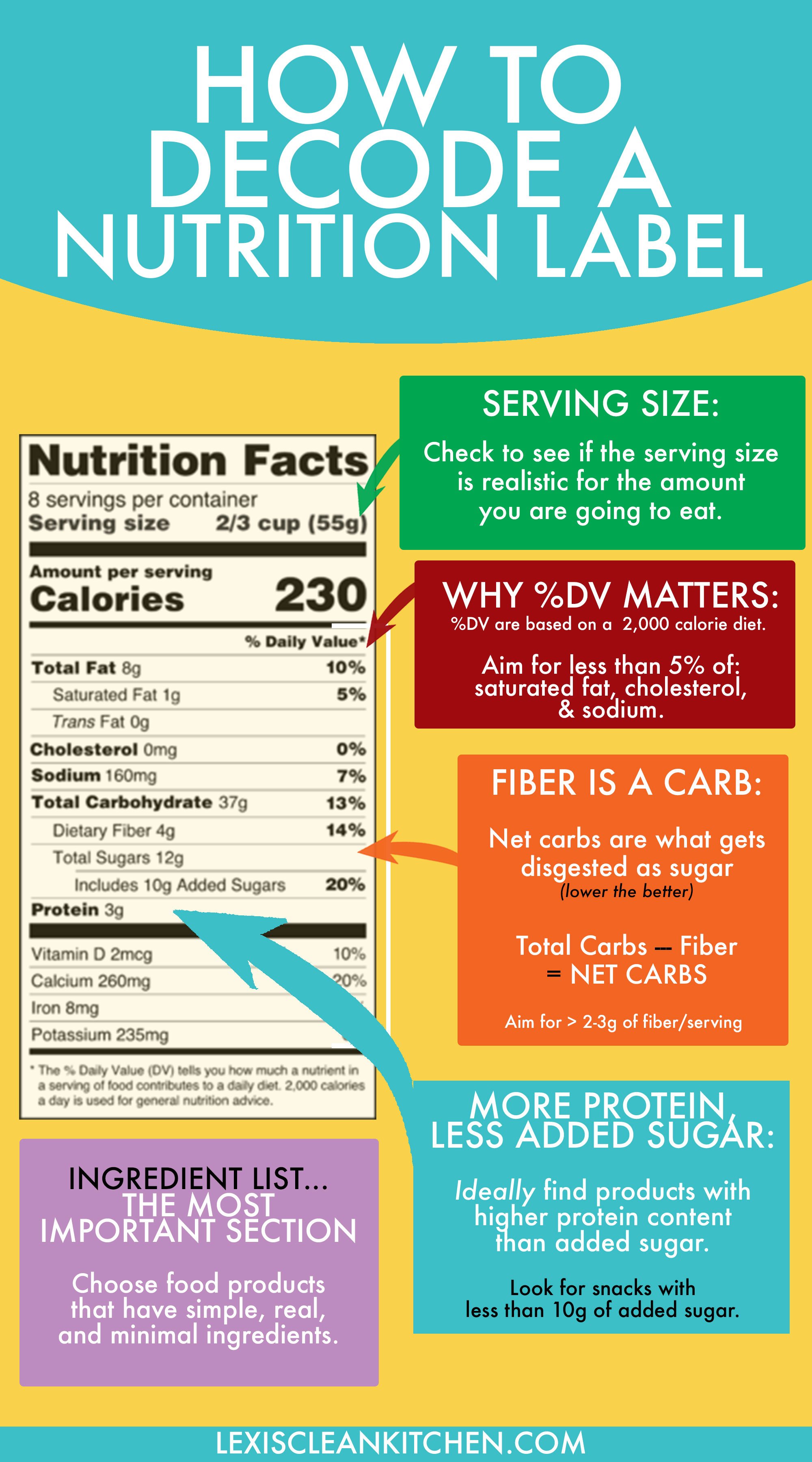

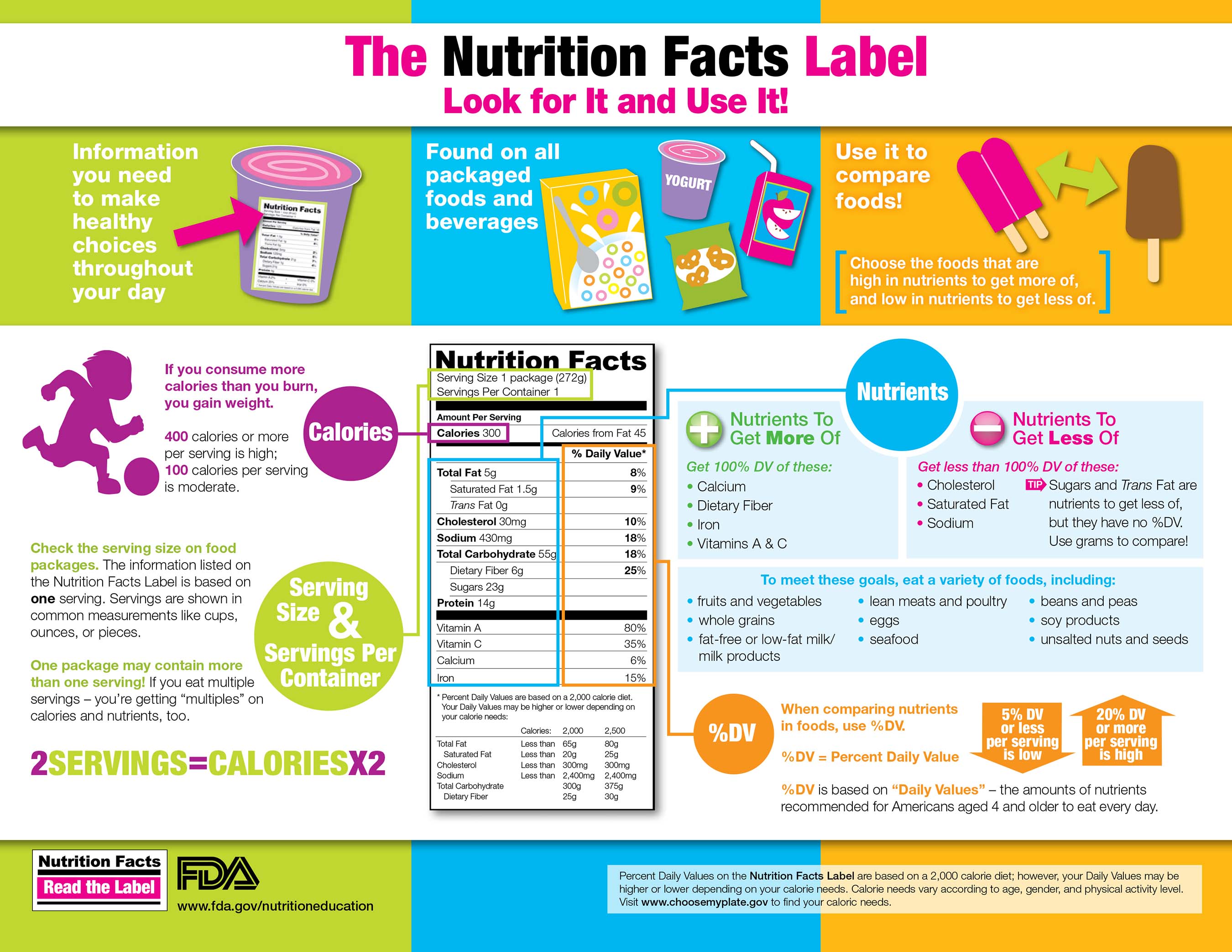
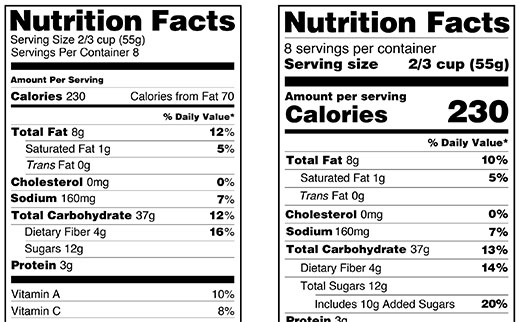
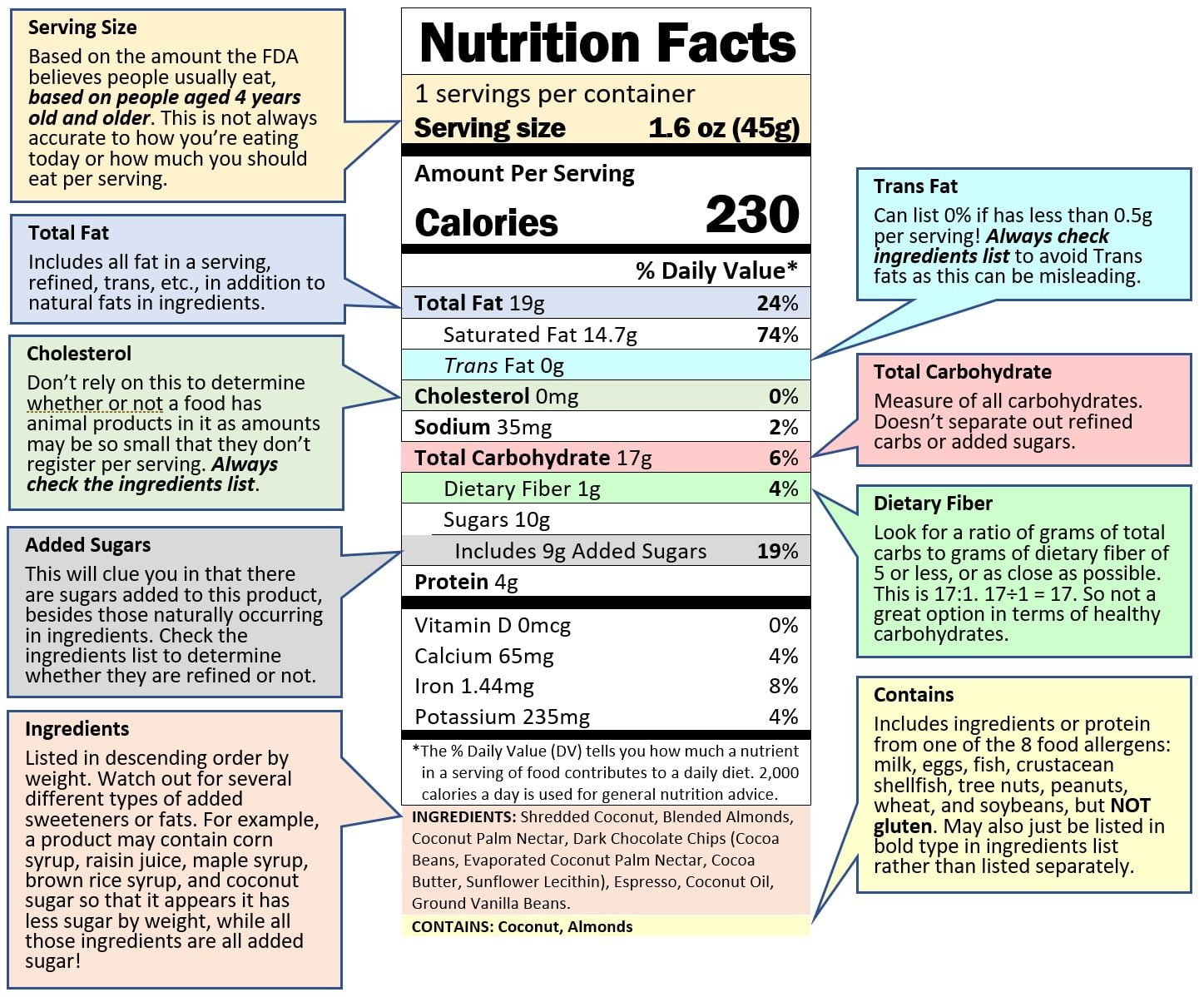
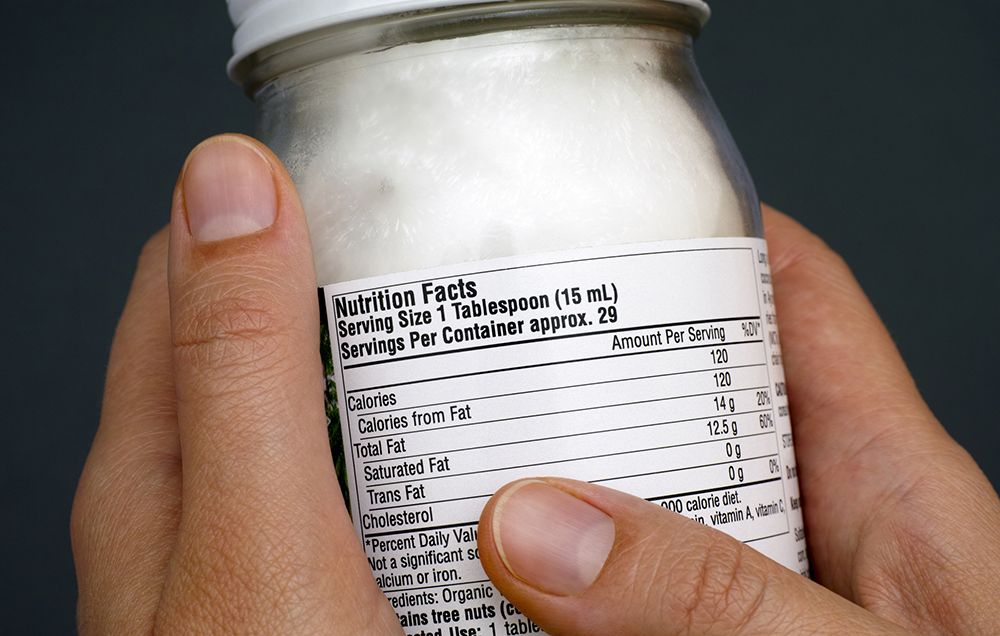



Post a Comment for "42 what to look out for on nutrition labels"